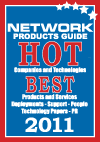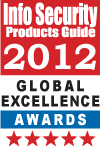By Bernd Reder
As the workforce becomes increasingly mobile, the methods by which users access critical business tools must evolve in kind. In the past, the desktop environment and all of the resources it hosted were only accessible if an individual was sitting right in front of his or her computer. But now, with the advent of laptops, tablets and smartphones, we’re seeing a paradigm shift—one in which digital assets are no longer imprisoned by local hard drives.
Virtual desktops allow employees to remotely access their traditional systems from any location, eliminating device storage concerns as well as numerous other headaches for IT managers. For example, if the IT department had to install a suitable desktop environment on every device used by every employee throughout the company, then provide technical support and roll out regular patches for each one, the workload would likely far exceed the department’s capacity.
A Central Virtualized Desktop
With virtual desktops, individuals working off-site can still access all the tools held within their office work stations, from the operating systems to essential applications and associated data. Not only is this more convenient for them, but it is more practical and less cumbersome for IT administrators. All sensitive information and tools are housed and managed in a secure location, mitigating the risks to company data if a security breach compromises an employee’s mobile device.
All of the company resources being accessed remotely are stored in secure data centers. Rather than having to constantly update and patch the myriad of tablets and smartphones that workers use while outside the office, IT managers can focus on deploying security measures that govern remote access privileges. Though this doesn’t completely eliminate the possibility of an attack against an employee’s mobile device affecting the organization, it greatly reduces those risks—more so than any alternative—and better equips IT personnel to safeguard important information.
According to a survey from U.K.-based market research firm Visiongain, more than half of U.S. respondents are either planning to virtualize their desktops or are considering exploring this option within the next 12 months. Visiongain also states that the world market for Virtual Desktop Infrastructure (VDI) products reached $11.6 billion in 2012, and predicts annual growth of almost 15 percent through 2015.
Where VPNs Come Into Play
Paramount to any VDI is a secure link between the virtual desktop and the device being used by an off-site worker to access it. As such, VPNs are indispensable. They ensure that data is transported across a secured, encrypted connection.
However, this is far from a “one-size-fits-all” solution. On-the-go employees will often use various mediums to connect to their virtual desktops, including public Wi-Fi networks at airports and hotels or local networks at the offices of current or prospective clients. A company’s VPN system has to be configured to securely handle all of these options if users are going to be able to safely and efficiently access their virtual desktop environments. What’s more, VPNs must be able to seamlessly handle transitions from one medium to the next, such as LAN to Wi-Fi, so that the connection is not lost or processes are not interrupted at inopportune times. If access proves problematic, the benefits of VDI begin to dissipate.
In order for companies to tap into the benefits of virtualized desktops, they must invest in robust VPN solutions that account for all possibilities and automatically initiate the proper security settings based on the communication medium an employee is using. Whether in a coffee shop with public Wi-Fi or another office location within the same organization, the VPN should be able to manage them all. Such a task is perfectly fitted to a dynamic personal firewall. Where run-of-the-mill VPN systems might fail, expertly developed and well-matured solutions will not.








VPNs Enable Desktop Virtualization
Posted: February 26, 2013 in Industry Commentary, IT policy, Mobile, SSL, virtualization, VPNTags: IT, IT security, mobile devices, mobility, virtual desktops, virtualization, VPNs
By Bernd Reder
As the workforce becomes increasingly mobile, the methods by which users access critical business tools must evolve in kind. In the past, the desktop environment and all of the resources it hosted were only accessible if an individual was sitting right in front of his or her computer. But now, with the advent of laptops, tablets and smartphones, we’re seeing a paradigm shift—one in which digital assets are no longer imprisoned by local hard drives.
Virtual desktops allow employees to remotely access their traditional systems from any location, eliminating device storage concerns as well as numerous other headaches for IT managers. For example, if the IT department had to install a suitable desktop environment on every device used by every employee throughout the company, then provide technical support and roll out regular patches for each one, the workload would likely far exceed the department’s capacity.
A Central Virtualized Desktop
With virtual desktops, individuals working off-site can still access all the tools held within their office work stations, from the operating systems to essential applications and associated data. Not only is this more convenient for them, but it is more practical and less cumbersome for IT administrators. All sensitive information and tools are housed and managed in a secure location, mitigating the risks to company data if a security breach compromises an employee’s mobile device.
All of the company resources being accessed remotely are stored in secure data centers. Rather than having to constantly update and patch the myriad of tablets and smartphones that workers use while outside the office, IT managers can focus on deploying security measures that govern remote access privileges. Though this doesn’t completely eliminate the possibility of an attack against an employee’s mobile device affecting the organization, it greatly reduces those risks—more so than any alternative—and better equips IT personnel to safeguard important information.
According to a survey from U.K.-based market research firm Visiongain, more than half of U.S. respondents are either planning to virtualize their desktops or are considering exploring this option within the next 12 months. Visiongain also states that the world market for Virtual Desktop Infrastructure (VDI) products reached $11.6 billion in 2012, and predicts annual growth of almost 15 percent through 2015.
Where VPNs Come Into Play
Paramount to any VDI is a secure link between the virtual desktop and the device being used by an off-site worker to access it. As such, VPNs are indispensable. They ensure that data is transported across a secured, encrypted connection.
However, this is far from a “one-size-fits-all” solution. On-the-go employees will often use various mediums to connect to their virtual desktops, including public Wi-Fi networks at airports and hotels or local networks at the offices of current or prospective clients. A company’s VPN system has to be configured to securely handle all of these options if users are going to be able to safely and efficiently access their virtual desktop environments. What’s more, VPNs must be able to seamlessly handle transitions from one medium to the next, such as LAN to Wi-Fi, so that the connection is not lost or processes are not interrupted at inopportune times. If access proves problematic, the benefits of VDI begin to dissipate.
In order for companies to tap into the benefits of virtualized desktops, they must invest in robust VPN solutions that account for all possibilities and automatically initiate the proper security settings based on the communication medium an employee is using. Whether in a coffee shop with public Wi-Fi or another office location within the same organization, the VPN should be able to manage them all. Such a task is perfectly fitted to a dynamic personal firewall. Where run-of-the-mill VPN systems might fail, expertly developed and well-matured solutions will not.
Share this: